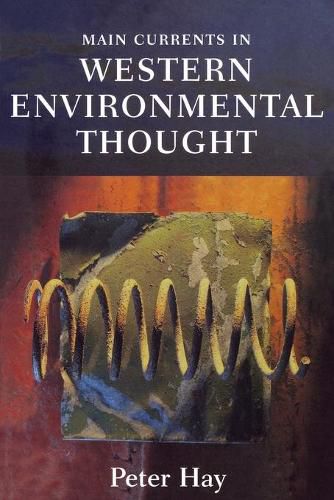Readings Newsletter
Become a Readings Member to make your shopping experience even easier.
Sign in or sign up for free!
You’re not far away from qualifying for FREE standard shipping within Australia
You’ve qualified for FREE standard shipping within Australia
The cart is loading…






Main Currents in Western Environmental Thought provides an inclusive and balanced survey of the major issues debated by Western environmentalists over the last three decades. Peter Hay examines issues in philosophy, religion, politics, and economics as presented or criticized by environmentalists. Topics covered include the roots of environmental philosophy; the development of ecophilosophy, deep ecology, and ecofeminism; how religion relates to environmental values; environmentalists writings on science and epistemology; animal liberation; the role of place; the economic dimensions of environmental thought; environmental writing in various political traditions; and green writers critiques of political movements. The work draws from the disciplines of philosophy, political science, psychology, sociology, and cultural studies. Clearly and accessibly written and including a comprehensive bibliography, Main Currents in Western Environmental Thought is well suited both as a handbook and guide to the large environmental literature and as a textbook for undergraduate and graduate courses in environmental studies
$9.00 standard shipping within Australia
FREE standard shipping within Australia for orders over $100.00
Express & International shipping calculated at checkout
Stock availability can be subject to change without notice. We recommend calling the shop or contacting our online team to check availability of low stock items. Please see our Shopping Online page for more details.
Main Currents in Western Environmental Thought provides an inclusive and balanced survey of the major issues debated by Western environmentalists over the last three decades. Peter Hay examines issues in philosophy, religion, politics, and economics as presented or criticized by environmentalists. Topics covered include the roots of environmental philosophy; the development of ecophilosophy, deep ecology, and ecofeminism; how religion relates to environmental values; environmentalists writings on science and epistemology; animal liberation; the role of place; the economic dimensions of environmental thought; environmental writing in various political traditions; and green writers critiques of political movements. The work draws from the disciplines of philosophy, political science, psychology, sociology, and cultural studies. Clearly and accessibly written and including a comprehensive bibliography, Main Currents in Western Environmental Thought is well suited both as a handbook and guide to the large environmental literature and as a textbook for undergraduate and graduate courses in environmental studies